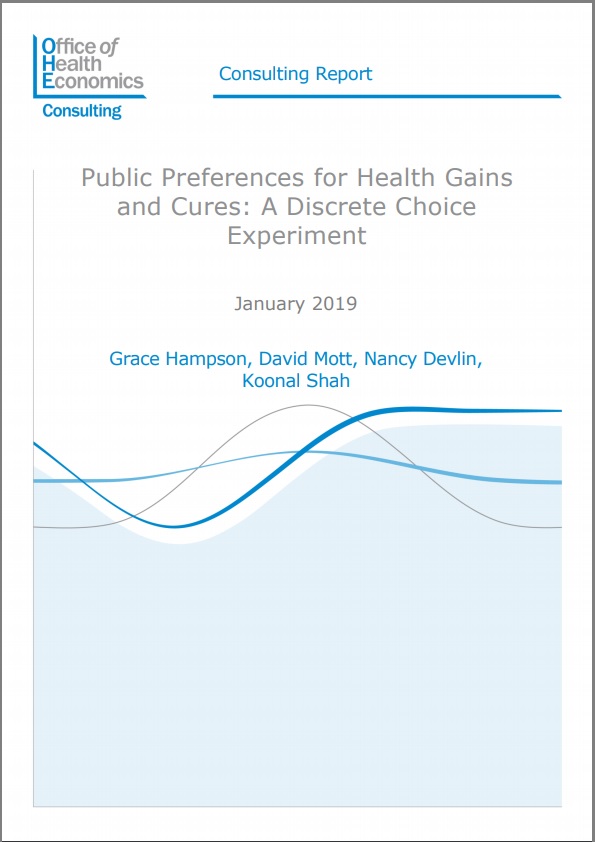Whether or not society values curative therapies more highly (or less highly) than the sum of the iterative improvements that might come from conventional therapy has…
Whether or not society values curative therapies more highly (or less highly) than the sum of the iterative improvements that might come from conventional therapy has been highlighted as an important area for research. The aim of this research was thus to explore society’s preferences across curative and non-curative therapies and large and small health gains, via a discrete choice experiment.
Whether or not society values curative therapies more highly (or less highly) than the sum of the iterative improvements that might come from conventional therapy has been highlighted as an important area for research. The aim of this research was thus to explore society’s preferences across curative and non-curative therapies and large and small health gains, via a discrete choice experiment.
Whether or not society values curative therapies more highly (or less highly) than the sum of the iterative improvements that might come from conventional therapy has been highlighted as an important area for research. The aim of this research was thus to explore society’s preferences across curative and non-curative therapies and large and small health gains, via a discrete choice experiment.
We find that respondents value health gains highly but do not appear to place additional value on the treatment being a “cure” per se. However, we use a very specific definition of a cure (treatments that restore patients to normal life expectancy and full quality of life), and therefore suggest that our results are taken with caution. Treatments that offer sizeable health gains, but do not necessarily restore health to that of a ‘healthy’ individual, would no doubt be of significant social value given the preferences of our respondents for larger health gains. This reflects the benefits offered by some advanced therapy medicinal products, which have the potential to result in substantial health benefits but may not entirely restore patients to the health of a disease-free individual.
This study was funded by the Association of the British Pharmaceutical Industry.
